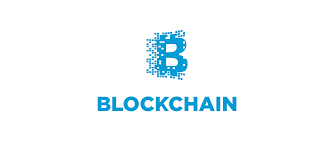


Blockchain—the digital ledger technology behind the cryptocurrency boom of the past decade—continues to revolutionize roles throughout the business world. Blockchain is the number one in-demand hard business skill for 2020,1 according to LinkedIn, and it has been hailed for its potential to streamline transnational transactions, enable automatically triggering “smart contracts” and make possible countless other business innovations.2
Businesses and professionals that want to keep up in this dynamic environment must embrace blockchain to operate efficiently, securely and with vision toward the future.
By now, you’ve heard about blockchain. But do you know exactly what it is, or how it can take your business to the next level? Blockchain Foundations and Frameworks cover positive and negative aspects of blockchains, as well as blockchain applications that could make a difference in your organization. When you learn blockchain through this foundational course, you will explore the origins and implications of Bitcoin; assess and distinguish cryptocurrency issues relevant to investors, consumers, developers, and businesses; and analyze Security risks your business may face as you integrate blockchain into your operations.
Blockchain has become a buzzword throughout the decade and has enticed many computer, math, and business enthusiasts, as well as the general public. Most people have heard about it because of the cryptocurrency Bitcoin. Blockchain is a revolutionary technology that has offered the world a new way of performing transactions of assets (not just money) of various kinds. It has also given us a new perspective on how to resolve certain issues related to these transactions, and how to implement different principles. If you wish to learn, in depth, the mechanics behind blockchain, to understand the protocols it uses, and to explore its many applications, then this is a course for you. You will be given a thorough introduction to what blockchain really is, and what is important to know in order to grasp it. You will learn what mathematics are behind it and what kind of algorithms and protocols can be used to implement a blockchain of some kind. And there are a lot of them!
Some say that blockchains are the future, and that they will be used progressively more and more. They are likely to make an impact in the way we trade assets, store assets, conduct food safety regulation, record patient information in healthcare, perform supply chain management, vote in elections and much more. Join us in this interesting course and dive into the world of blockchain.
No longer limited to the world of cryptocurrency, industries as varied as health care, banking and manufacturing are looking to blockchain for greater transparency, enhanced Security , improved traceability, and increased efficiency while reducing costs at the same time. Use cases range from tracking, and managing cross-border payments to verifying the origin and authenticity of products to identity management. However, despite all this promise, large skills gaps still exist to fully leverage the promise of this technology. Whether you’re a business leader evaluating ways to leverage blockchain in your organization, an architect searching for technical training on linking blocks with cryptography, or a developer making everything come together, we have the blockchain training you need to be successful!
Popular courses are Enterprise Blockchain Architecture Training
If you need training for 3 or more people, you should ask us about onsite training. Putting aside the obvious location benefit, content can be customised to better meet your business objectives and more can be covered than in a public classroom. It's a cost effective option. One on one training can be delivered too, at reasonable rates.
Submit an enquiry from any page on this site, and let us know you are interested in the requirements box, or simply mention it when we contact you.
All $ prices are in USD unless it’s a NZ or AU date
SPVC = Self Paced Virtual Class
LVC = Live Virtual Class
Our clients have included prestigious national organisations such as Oxford University Press, multi-national private corporations such as JP Morgan and HSBC, as well as public sector institutions such as the Department of Defence and the Department of Health.












